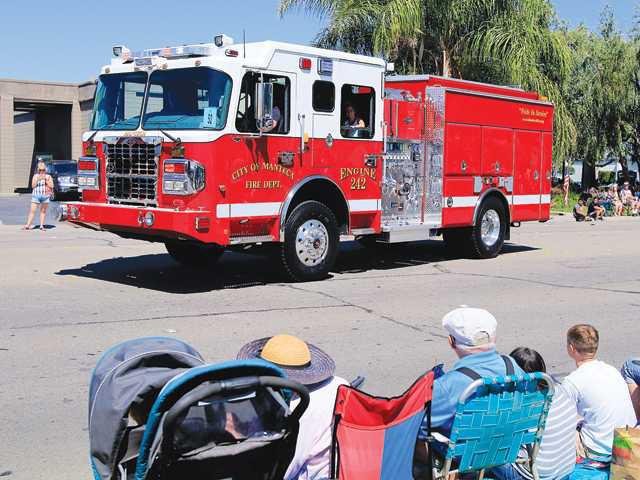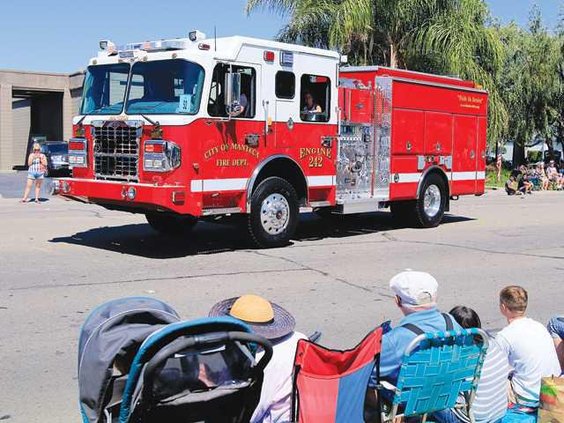Manteca Fire is down to two functioning back up engines after three fire engines broke down in the course of 72 hours.
The last break down happened Friday evening when the engine company stationed at the Louise Avenue was dispatched for a medical emergency.
When the engine wouldn’t start, firefighters scrambled to board the back-up engine.
That engine didn’t start either.
They had to call another engine company stationed farther away from the medical emergency to respond.
That engine was able to start.
Friday evening’s incident came on the heels of the aerial truck breaking down on Yosemite Avenue on the way from the Powers Avenue station to a medical emergency at El Rancho Mobile Home Park.
An engine from the Louise Avenue station — that had an engine that worked — was dispatched.
Engines breaking down are nothing new.
But what is was Wednesday’s incident where a fire engine broke down while responding to an emergency.
And up until Friday evening when a front-line engine wouldn’t start due to issues, the back-up engine always did.
Break downs have become common occurrences in recent years as growth has stretched Manteca’s bid to squeeze every mile possible out of engines due to perennial city funding issues.
Manteca experienced call volume percentage growth of single digits annually for years.
Then the Manteca Fire Department saw a 43% rise in call volume from 2017 to 2022.
It made it the county’s second busiest fire department even though it is the third largest city.
In 2022, Manteca firefighters responded to 10,852 calls for service. Just under two thirds of all calls are for medical emergencies.
Part of the problem is rapid growth has put 2,000 plus homes in southwest Manteca outside the targeted response time given a sixth station should have been built by now.
Besides having the odds of less optimum outcomes in emergency situations, the significant additional miles needed to reach calls outside of a five-minute response time puts additional wear and tear on the department’s fleet of five frontline engines and five back-up engines.
As of Friday, Manteca was down to seven engines
The department has repeatedly dealt with engines that have stretched well-beyond their expected service life of 10 years in front-line service and 10 years in back up service.
They have been able to slide by to a large degree when call volume was more manageable.
And it isn’t a new problem nor is it something that has been kept a secret.
The ongoing equipment replacement problem has been discussed at numerous public meetings over the years.
Fire equipment funding requests compete with other pressing needs in the city.
The city has proposed a 20-year three-quarter cent sales tax hike on the Nov.5 ballot to address general fund revenues that aren’t keeping up with the need including the ability to replace aging fire equipment in a timely manner.
Measure Q is projected to generate $13 million annually if it passes.
Manteca is actually hanging on to equipment for less time than it has in the past.
For example, an open cab 1958 Dodge fire engine purchased new was in frontline service until 1999.
The 41 years of use was more than double the life expectancy of the engine. And its repeated break downs underscored how it had stopped being reliable.
Up until the mid-1990s, Manteca still had fire engines manned with only two firefighters.
Even having two firefighters on an engine company was a challenge for the city.
The Louise Avenue station when it was completed in 1984 sat empty for a year as the city lacked funding to staff an engine company.
To contact Dennis Wyatt, email dwyatt@mantecabulletin.com








